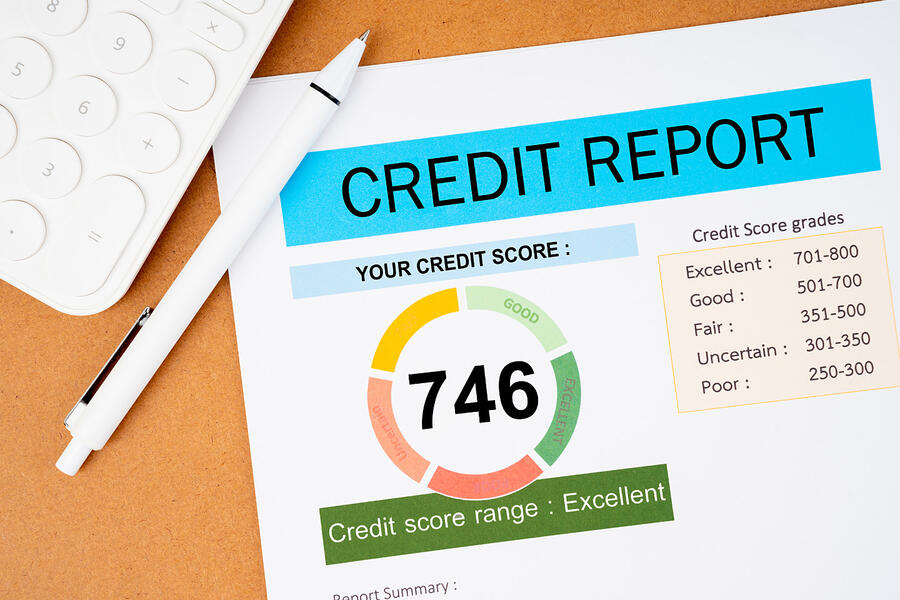Are you being bombarded by advertisements for services to help manage your credit? The offers—to improve your score, show your report, eliminate recurring charges, and find the best card for you—are tempting.
If you find the concept of credit puzzling, you can demystify it with expertise from the Marsh McLennan Agency, JHU's partner in supporting you in managing your financial well-being. Here's MMA's rundown of the basics:
What is credit and why do I need it?
In its most basic sense, credit is the level of trust that a potential borrower must earn before a lender will be willing to lend that person money. Another way to think about it is that credit is your ability to borrow funds to obtain a product or service now and pay for it over time. The more trust or credit you have, the more money you'll be able to borrow. Better credit also may lead to more favorable loan terms, such as lower interest rates and more flexible repayment options.
Credit allows you to finance large purchases, such as a new car or an education, and pay for them over time with interest. Typical forms of credit include credit cards, loans, and mortgages. You pay interest on the money you borrow, so the item costs more over time.
While credit lets you pay later, it doesn't mean you can pay late—at least not without consequences. Say you buy a new tablet for $300 using your credit card and miss your monthly payment. There will be a penalty: You'll be charged a late fee, and your interest rate could spike, depending on your card's late payment terms. That $300 tablet could end up costing you $500 by the time you pay it off. Best practice to avoid the fees and consequences? Plan to pay on time, every time.
Credit reports
A credit report is a compilation of your personal information; your credit history, including how you have repaid your debts; and a record of who has reviewed your report in the past two years. These factors are used to create your credit score, a three-digit number that lenders and other parties use to determine how likely you are to pay back a loan and keep your financial commitments.
There are several scoring models, including FICO and VantageScore, and scores generally range from 300 to 850. Read details about the numbers here.
You are legally entitled to one free annual view of your reports from each of three credit reporting agencies: Experian, Equifax, and TransUnion. Go to AnnualCreditReport.com to retrieve your reports.
How to read the three parts of your credit report:
- Personal information. This section includes your name, current and former addresses, employment, and other information about you. Typically, the details are gathered from previous credit applications. Look this part over for accuracy, and if anything is incorrect, request a correction from the agency.
- Debt history. Most of your credit report is information about how you've paid your debts. You'll see past and current accounts, balances, and payment history for each. Your report should include all accounts with which you're associated, whether you are the sole owner, a joint owner, or an authorized user. Even closed accounts will be listed, though they should not show up as open. Review each account to make sure it's accurate and up-to-date and dispute any errors with the bureau.
- Collection activity. If you have collection activity, you may see the original debt listed and then charged off around the date the unpaid debt was reported to a collection agency. If you've had significant issues such as a judgment, lien, garnishment, or bankruptcy, you may see it in the public records section. But public records aren't always reflected on all reports, so don't consider an absence a resolution of unpaid debt.
Achieving and maintaining good credit
Before doing business with you, lenders want to be sure you have a record of paying your bills on time, and the best way to do that is to look at your credit report.
Here's how you can achieve and maintain good credit:
- Keep your credit use rate at less than 30% of the credit available to you, but ideally aim for 10%.
- Pay every month's bills in full.
- Consider using automated payments and reminder systems to avoid late payments.
- Avoid applying for an abundance of credit in a brief amount of time as this activity can lower your score and make you look risky.
- Use revolving accounts, such as credit cards and lines of credit, lightly but regularly to maintain a good credit score.
Your credit scores and reports can always be improved upon. Scoring models emphasize current credit activity more than past, so every timely payment and eliminated debt contributes to a rising score.
Want to learn more?
As a Johns Hopkins employee, you have free access to financial expertise from MMA. Schedule an appointment to speak with a coach regarding your individual financial needs. You can discuss your credit score or other financial topics, including general investment questions, Social Security, debt and budgeting, employee benefits and insurance, pre-retirement planning, or review tools available on MMA's Prosper Wise site.
Don't have your free MMA account yet? Sign up by clicking here.
Questions can be directed to benefits@jhu.edu.
Posted in Health+Well-Being
Tagged hr newswire








